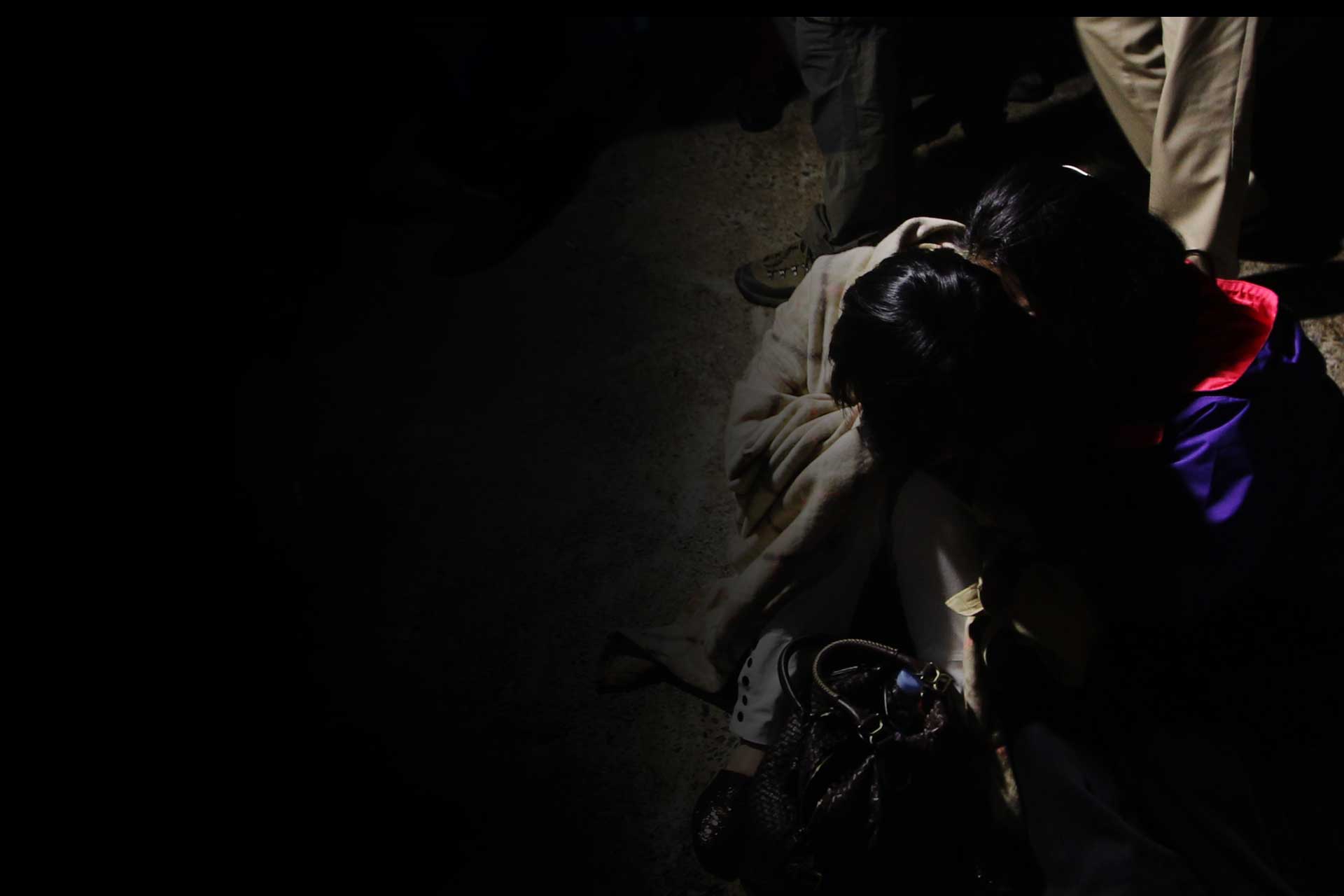

Tragedy
"Go to your cabins!" "Don't move!" "Stay put!"
They were well-behaved teenagers who followed the crew's instructions to stay in their cabins even amidst rising waters. Some of the few who were lucky enough not to be in their cabins at that time lost their lives after giving up their life jackets and going back to save their friends. Some text-messaged their mothers with trembling fingers saying that they loved them. And most of them lost their lives because of incompetent and irresponsible adults.
Their horrific last hours can be traced through harrowing messages and calls with their loved ones.
"Mom, just in case I don't have the chance to tell you in person, I'm sending this message. I love you." The last message a son sent to his mother was that of love. It took some time for Mrs. Shin to realize the predicament her son was in and send a message back: "I was wondering why you weren't checking your messages. I love you too, son. ♥♥♥" Whether he was able to check her message or not, we do not know.
"I love you, nuna (big sister). Tell mom I love her, too. I'm sorry I wasn't nicer to you. I'm off to join dad." The kid brother sends a message, feeling himself at death’s doorsteps. Despite being gripped with fear, he manages to calmly convey his feelings to his remaining family while preparing himself to meet his father in heaven.
Jung Cha-woong gave his life jacket to a friend and made his way through the severely tilted ship to search for others as the cold sea waters rose and filled up the vessel. A loving son to his parents, he was also a hard-working student with many friends. He was the leader of the class math group and had "Study Hard!" taped onto his desk. Cha-woong was last seen in the corner of a cabin, trying to get his friends out as the ship sank.
How scared and cold they must have been. On the sixth day after the ferry capsized, two bodies were recovered from the ship: a boy and a girl, tied together with the straps of their life jackets. The diver who discovered them recalls that he found the boy first. As he tried to push the boy’s body out of the sunken ferry, he felt a weight pulling him back. When the diver realized what it was, he wept under his mask. “They were facing fear together, tying themselves together in hope that they would live. May they rest in peace.” It was the most painful and memorable experience the diver has had.
The parents of the students rushed to Jindo when the news broke out. However, nothing could have prepared them for what they would face upon their arrival. The special news coverage from the major broadcasting channels had initially reported that all the students had been rescued. The parents’ hopes of bringing their children home were crushed when they learned that those reports were false and most of the children were, indeed, missing. The nightmare of that day is still very much going on.
On April 23, 2014, Kim Young-oh and his wife rushed to Paengmok-hang harbor at the news that the 164th body had been retrieved. He recognized his daughter as soon as he saw the face. She looked like she was sleeping.
"She would have hung on to the last and probably died of hypothermia. But I want to know whether it was hypothermia or suffocation. Who can understand how I feel? Knowing there is no way to find out? She must have died absolutely terrified, calling for her mother and me..."
Kim repeatedly expresses his anger and disbelief at the injustice. But he adds, “At least we found her body. There are so many who haven't, but I have. I should find solace in that.” His overwhelming guilt at not having been able to provide for his daughter better while she was alive and the guilt he feels towards the parents whose children haven’t been found was somewhat appeased by the peaceful look his daughter had. She had come back as he had remembered her.
The chaotic temporary shelter at Jindo Gymnasium settled into deep silence as time went by. The parents were exhausted from the inadequate efforts, the slow progress, the waiting. They had no energy left to argue. Their shallow sleep is interrupted by the announcements over the loud speakers informing them that another body has been recovered. The families jerk awake and focus their attention at the center podium. The sound of weeping can be heard here and there and the desk set up in the corner for body identification is suddenly busy with frantic parents.
"My son was addicted to games so I got rid of the computer and didn't even buy him a smartphone. I gave him an MP3 so he could listen to music. Who listens to music on an MP3 these days? It must be him," one trembling mother cries. "Our boy was found at the same place. The whole class must have been together," says another mother.
Even in their grief, the two mothers find consolation. "Thankfully, they were not alone.”
"Did you find him?"
"His name is here."
"Black jeans and a pendant. It's him..."
The situation at the harbor's identification desk is no different. When news that a large number of bodies have been recovered comes in, anxious parents gather in front of the identification board, checking the list of names from the student IDs. Those who find their child's name weep while those who don't sigh despondently. Those who find their child cry with joy and console the others, who in turn extend their most sincere congratulations, creating a disturbing scene that can only be born from a distorted tragic situation.